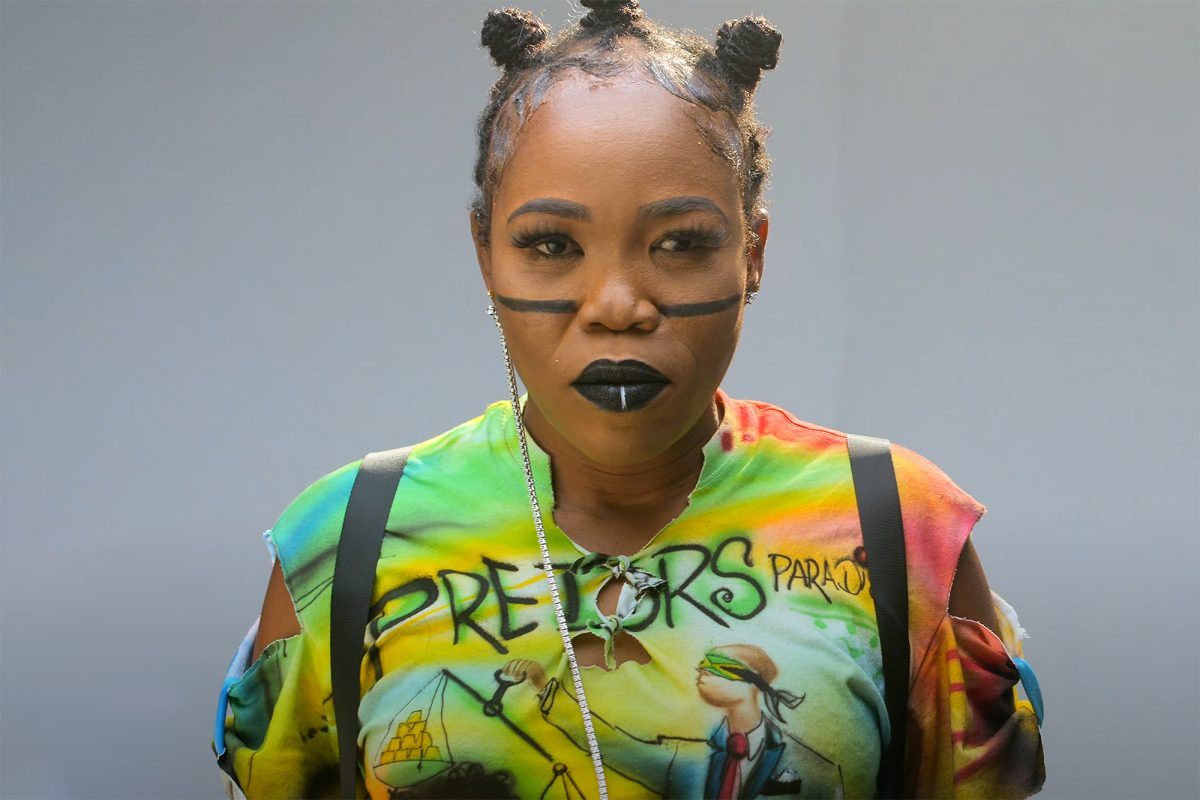Four Takeaways From Queen Ifrica’s New Song ‘Predators Paradise’

Anytime Jamaica appears to be descending into disorder and degeneracy, the voices of Rastafarian musicians have always served as an incendiary, to compel the country to get ahold of itself. Queen Ifrica’s new single, Predators Paradise then, comes as no surprise, and is right on target, because based on the rates of sexual abuse and gun violence reported over the last 12 months, all is not well with Jamaica.
The song and video, Queen Ifrica told DancehallMag in an invited comment, “is a modern way of painting the picture of the strength of predators in our society.”
Here are a few takeaways.
Jamaica: From Pimpers’ Paradise to Predators’ Paradise
“Nothing will change, they say…,” Ifrica points out in the song, a stark indictment on the country where victims of rape are known to, in many cases, not be supported or comforted by those close to them or outrightly blamed.
“We are the forgotten ones,” another line goes, pointing to the fact that many victims of molestation and rape are either not believed, stigmatized, or are told to grin and bear it, as these practices are deemed by many to be a longstanding part of the culture.
“Predators get away with everything, talk truth, she points out implicitly referencing Jamaica’s Rape Culture and concomitant Code of Silence.
She extrapolates from Echo Minott
Ifrica interpolated Echo Minott’s 1986 hit What the Hell The Police Can Do , seemingly hinting that honorable members of the Constabulary have their hands tied, as the predators are highly influential and hold positions of power. Others in so-called high society, are involved in trafficking in persons themselves, as depicted in the video where small scared-looking children are slowly led away by the supposed violators, while “well-dressed” adults stand idly by.
Perpetrators get away with everything (talk truth)
their supporters and cheerleaders only laugh at you
what di hell the police can do?
I
n other words, your outcome will depend on you.
Those lyrics follow a clip, albeit short, of a policeman collecting what appears to be a bribe —a stark reminder of the fact that corrupt policemen and women, are in the Constabulary, and their deviant actions continue to thwart the work of the trustworthy in that organisation.
She’s in sync with Rastafarian drumming
The Nyahbinghi drumming embedded within Junior Brown’s Redemption Project riddim, coupled with the wailing sounds of Queen Ifrica lamenting the abyss of sexual deviance into which Jamaica has plunged, and has been wallowing for decades, is a stark reminder that the nation has to clean up its act.
But it’s worth pointing out that very few contemporary artists are able to have a commanding presence on, and become one with Nyahbinghi drums like Ifrica. The Montego Bay native’s inflections and elocution are impeccable on the beat, and the lyrics are so profound that you almost do not want the song to end, despite its painful message. But then, Ifrica is a Rastafarian, so drumming is second-nature.
The Lioness is Still ‘on the Rise’
Predators Paradise is testament to the fact that the Lioness is still on the front lines, and will continue “rolling with the punches”, as she had expressed in her song Lioness on the Rise from her debut album Montego Bay. This time she re-emerges as a Phoenix from the fire as she states in her intro.
Predators Paradise, should serve as a wake-up call to all Jamaicans, as it comes on the heels of an earth-shattering picture Ifrica painted of Jamaica’s Reggae/Dancehall industry being infiltrated by sexual predators, who prey on young girls with impunity, a situation which is only a microcosm of what is taking place in the country.
Supporting data from a 2016 survey on adolescent sexual and reproductive health issues in Jamaica, revealed that “almost half of all sexually active females in Jamaica between the ages of 15 and 24 years old were forced into their first sexual encounter”.
More recent statistics have shown that most of the rape cases involving children have seen a sharp increase in the number of children between ages two to 10 and 10 years old being sexually assaulted.
